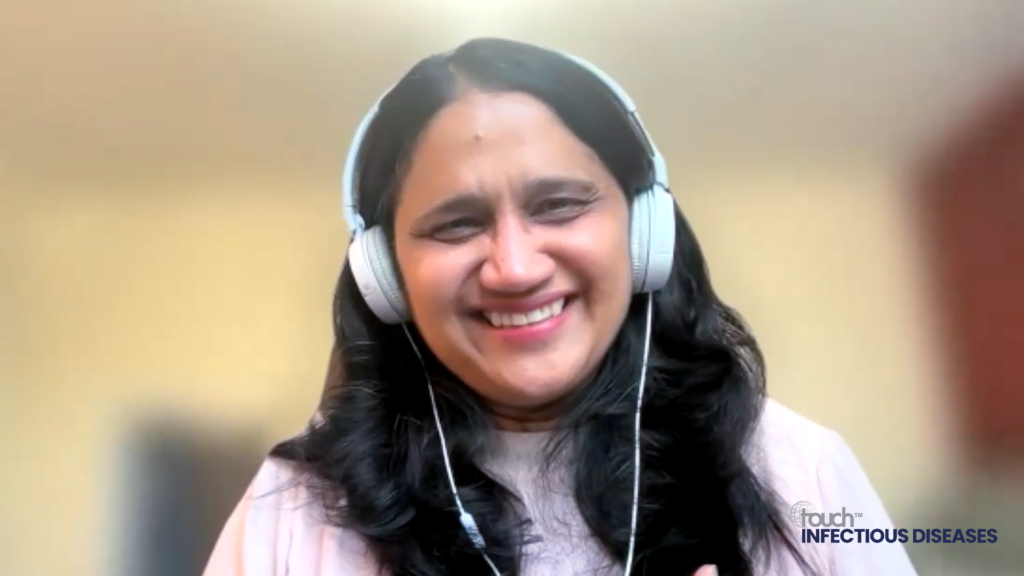The effects of COVID-19 vaccination on women’s menstrual cycles have been a recent topic of interest and concern. Dr Victoria (Viki) Male (Imperial College London, London, UK) addresses that there have been some reported changes in women’s menstrual cycles after receiving a COVID-19 vaccine. The mechanisms behind these changes are not yet fully understood, but ongoing research is exploring possible explanations, including immune system responses and stress. Dr Male highlights that healthcare professionals can support women by providing information about the vaccine and menstrual cycle changes and offering resources for further information for people living the United Kingdom.
Interviews in this series:
COVID-19 and family planning – Impacts of vaccination and infection
Questions:
- What have been the reported effects of COVID-19 vaccination on women’s menstrual cycles? (0:15)
- What is the current understanding of the mechanisms behind menstrual cycle changes after COVID-19 vaccination, and what areas of research are being pursued to learn more? (1:07)
- How can healthcare professionals support better women who are concerned about menstrual cycle changes after vaccination, and what resources are available for further information? (2:09)
Available resources:
COVID vaccines can temporarily affect menstruation, and studying that matters
Pregnancy, breastfeeding, fertility and coronavirus (COVID-19) vaccination – NHS
Coronavirus vaccine – summary of Yellow Card reporting
Disclosures: Victoria Male receives grant/research support from Borne, and has received support from Elsevier to attend the 16th Vaccine Congress as a speaker.
Support: Interview and filming supported by Touch Medical Media Ltd. Interview conducted by Katey Gabrysch.
Transcript
Hi I’m Dr. Viki Male, and I’m a reproductive immunologist at Imperial College London.
What have been the reported effects of COVID-19 vaccination on women’s menstrual cycles?
Periods vary a lot naturally, so to separate out any variation due to vaccination from normal variation, we had to compare large groups (thousands) that vaccinated and unvaccinated individuals. By doing this, we were able to find that about 1% of people will have a significantly lighter than usual period, and about 4% of people are significantly heavier than usual period, the month that they get vaccinated. But it’s important to note that these changes go back to normal within one or two cycles. If you have a late or heavy period after getting vaccinated or boosted, you might be one of these groups of people experiencing vaccine mediated menstrual changes. But if you notice the change that persists, that’s unlikely to be a vaccine effect, and you should get that checked out by your doctor and treated just as usual.
What is the current understanding of the mechanisms behind menstrual cycle changes after COVID-19 vaccination, and what areas of research are being pursued to learn more?
We see menstrual effects with all different kinds of COVID-19 vaccines, and there’s some evidence that they also happen for vaccines against other diseases. We don’t think that there’s a specific vaccine component causing this, but we do know that the immune system and the sex hormones that drive the menstrual cycle crosstalk. So one idea is that crosstalk can drive these temporary changes, and some evidence in support of this is that people who are taking combined hormonal contraception, whether contraception is driving the cycle, are much less likely to notice vaccine associated menstrual changes. We also think that the first half of the menstrual cycle is more sensitive to this effect. We notice that the changes have been mainly when people get vaccinated in the first half of their menstrual cycle. So there is more evidence that these effects are mediated by temporary changes to the way that our immune system performs cross-talk.
How can healthcare professionals support better women who are concerned about menstrual cycle changes after vaccination, and what resources are available for further information?
In the UK, you can find additional guidance on COVID-19 vaccination and menstrual changes on the MHRA summary yellow card reporting and a lot of NHS websites will also point to the same information. But this doesn’t include information from the latest academic study, so anyone who’s interested in them. I recently read an article in Scientific American summarizing this information in a way that’s quite easily accessible to a non-scientific audience.











